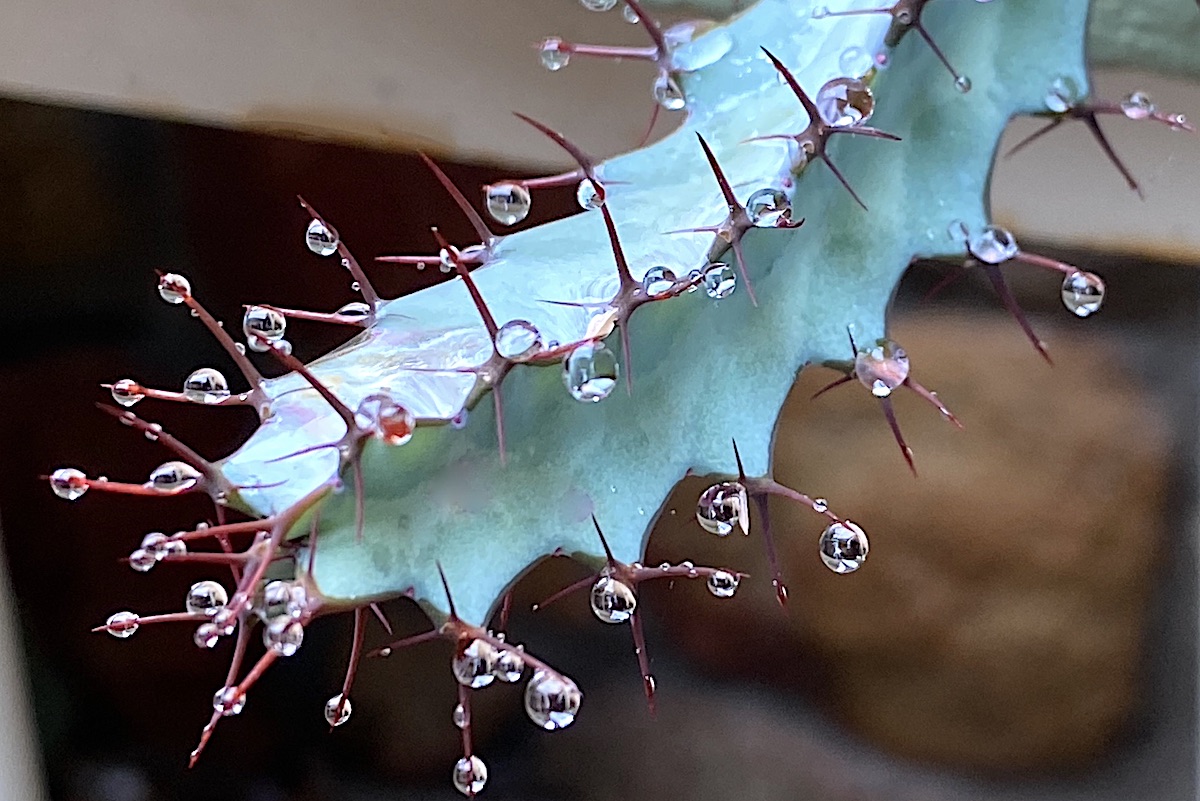
Succulent Rainstorm Checklist
Succulents love rain, but some may be in danger of getting too much. Prepare your plants with my Succulent Rain Checklist:
In-ground succulents
-- Channel runoff away from low-lying garden beds.
-- Turn off automatic irrigation. Leave it off until the weather warms and the soil dries in spring.
Succulents in containers, outdoors
-- Check to make sure drain holes aren't clogged. This sometimes happens when pots sit on the ground instead of atop rocks or pavement. Use a chopstick to test the hole (push upward from underneath).
-- If soil is already wet, move potted succulents under cover. A bit more rain probably won't hurt, but if succulents (especially rotund euphorbias and cacti) stay cold and wet for prolonged periods, they may rot.
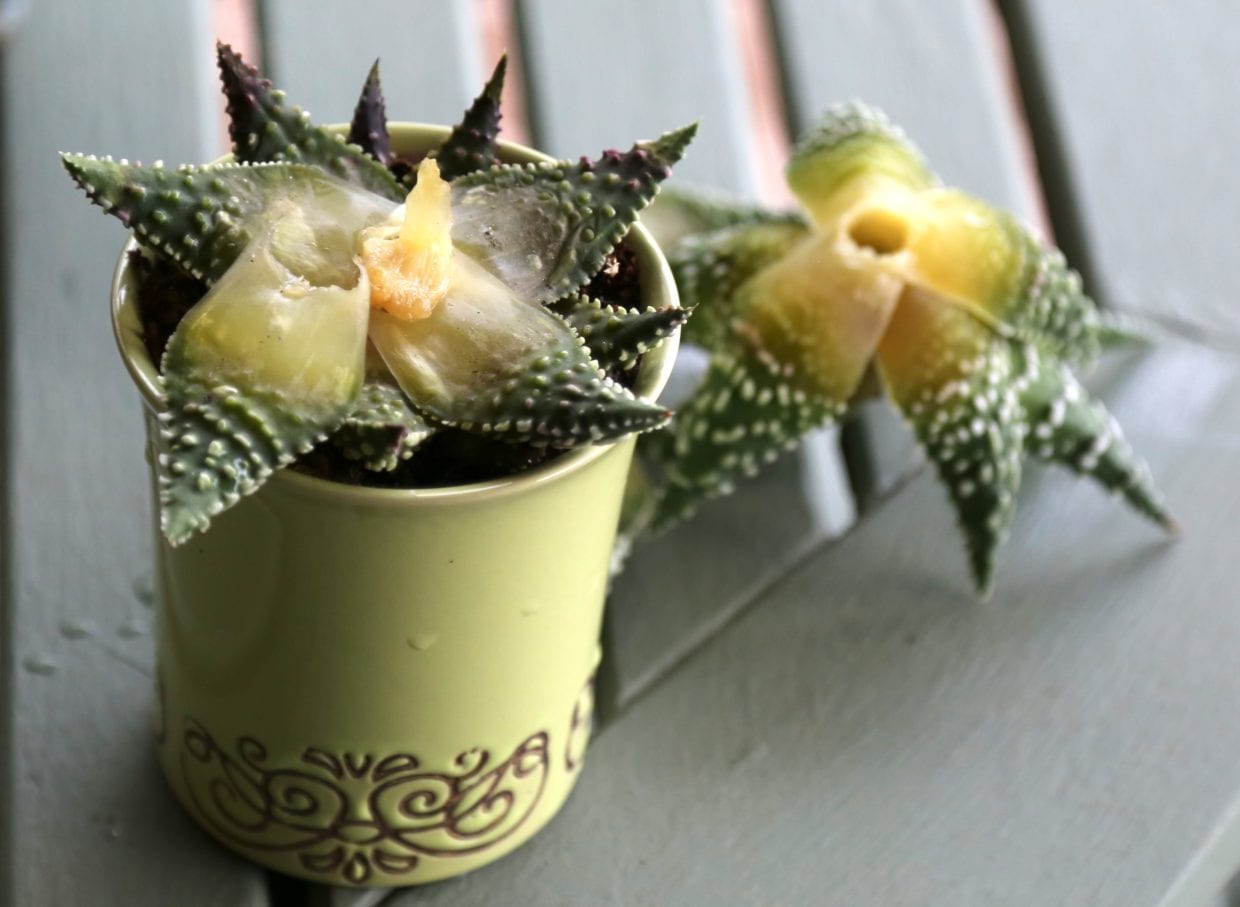
My fault. I'd forgotten that the container didn't have a drain hole.
Succulents in containers indoors and on covered patios
-- Place them where they'll get a good soaking. Rain provides dissolved minerals and nitrogen, washes away dust that inhibits photosynthesis, flushes harmful salts from the soil, and boosts spring growth and flowering.
-- Set out buckets and pitchers to collect rainwater. Use it to water succulents you can't or didn't move.
-- It's seems obvious but is worth emphasizing: Don't set succulents in non-draining containers out in the rain.
After the rain
-- Don't let sunshine scorch plants you've moved into the open. Haworthias, sansevierias, and anything variegated are especially vulnerable.
-- Check the forecast. If nighttime temps are predicted to drop to 32 degrees F or lower, late in the afternoon cover vulnerable succulents with bedsheets. Or use a lightweight, non-woven fabric sold in garden centers as "frost cloth" or "floating row cover." Succulents along walls or under eaves and trees are less likely to freeze than those beneath open sky.
What about hail?
There's not much you can do. In several seconds, soft-leaved succulents can get pitted by hail's impact. The good news is that spring growth usually hides the damage. You can try protecting soft-leaved succulents (like Agave attenuata) with frost cloth. I place an old window screen atop my thin-skinned, juicy-leaved Glottiphyllum linguiforme because hail makes it look terrible forever.
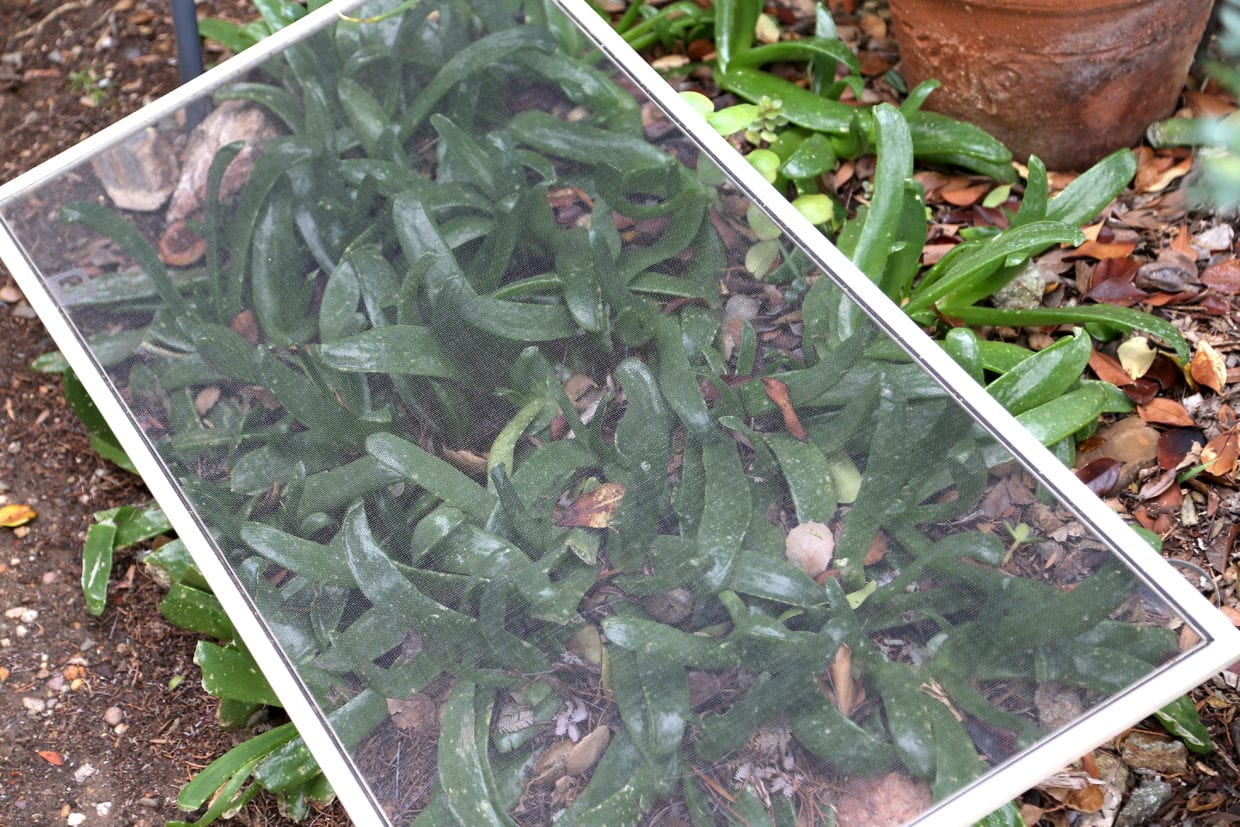
Related info on my site
How rain benefits succulents Don't be surprised if after a good rain, your succulents look brighter and more vibrant. Here's how rain benefits succulents...[Continue reading]
Oh, No, My Succulents Froze! Will succulents recover from frost damage? It depends. Here’s how frost-tender succulents looked before temps dropped into the mid-20s F, and after...[Continue reading]
Caring for Your Succulent Garden After Rainstorms, Checklist Rain at last! Could the California drought finally be over? Well, no. It’ll take hundreds of years for underground aquifers...[Continue reading]
On my YouTube channel:
Help Your Succulents Survive Rain, Hail, Frost
gallery: succulents after Rain
The difference between succulents before and after rain is dramatic. Compare those here in my rainstorm gallery with my autumn post on my succulent deck collection, and you'll see what I mean. Glorious!

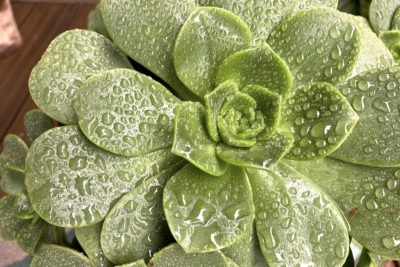
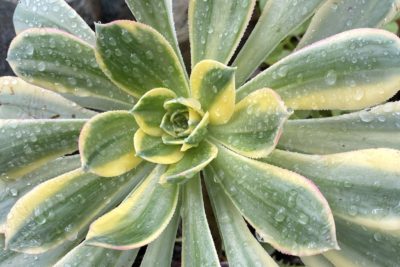
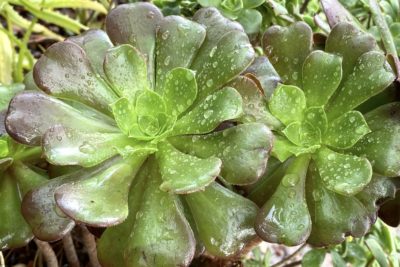
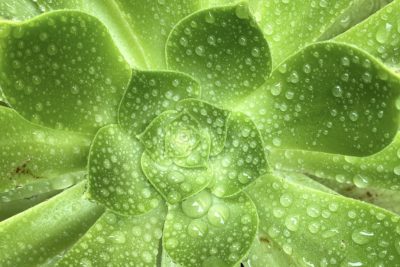
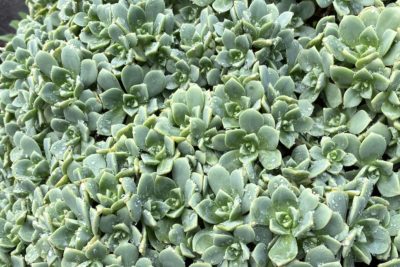
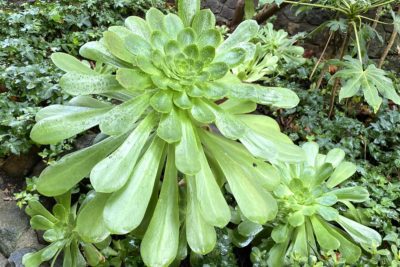
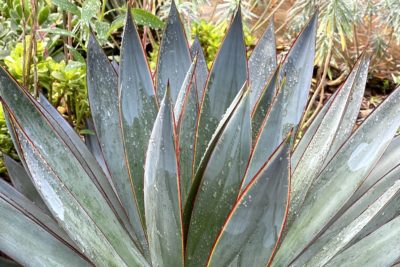
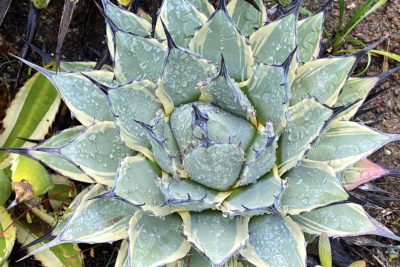
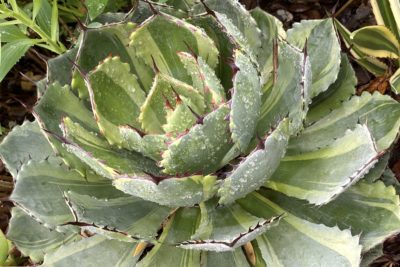
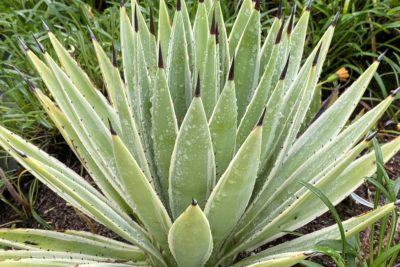
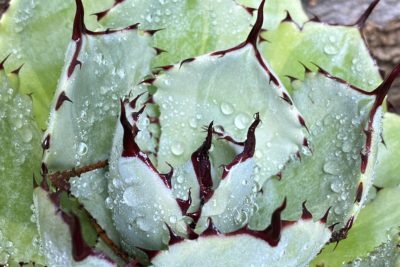
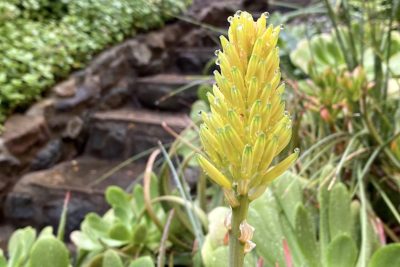
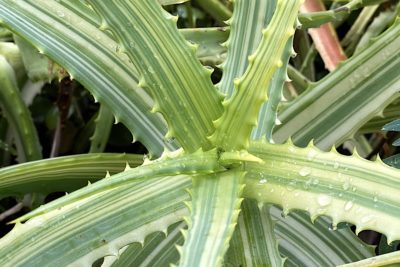
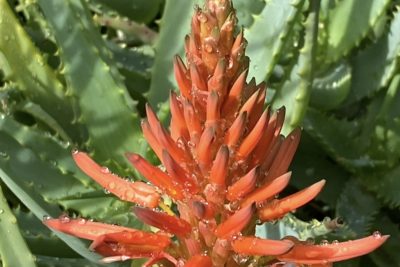
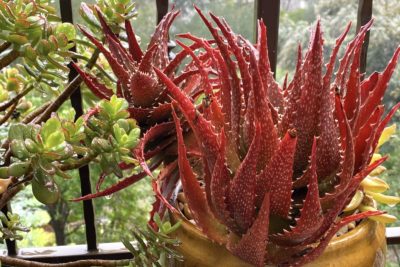
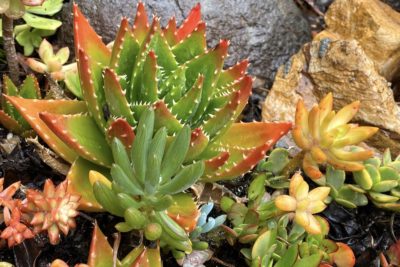
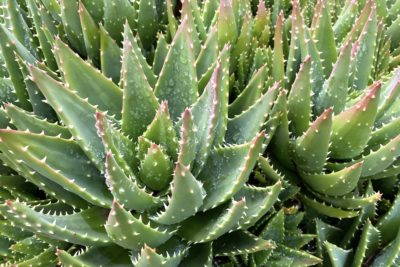
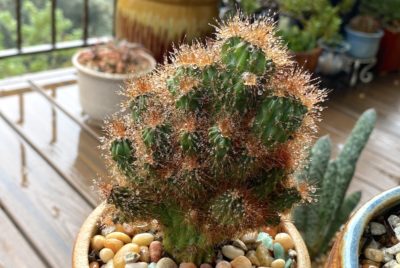
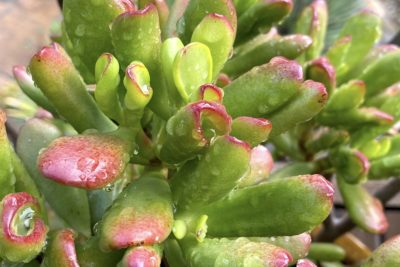
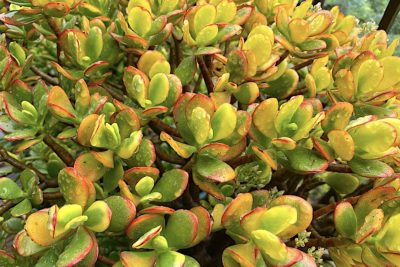
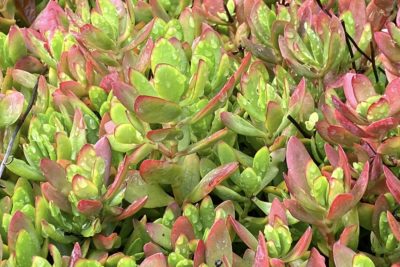
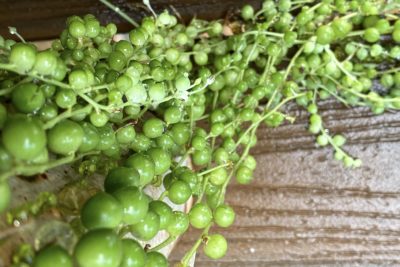
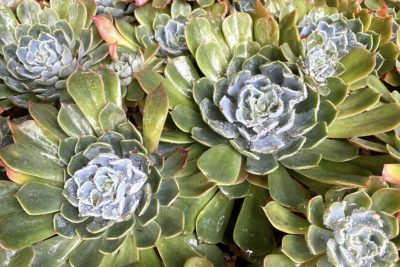
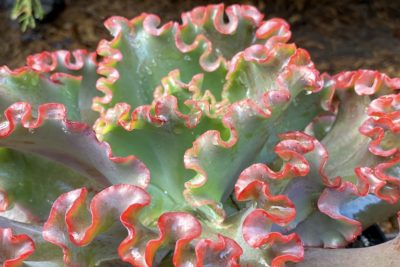
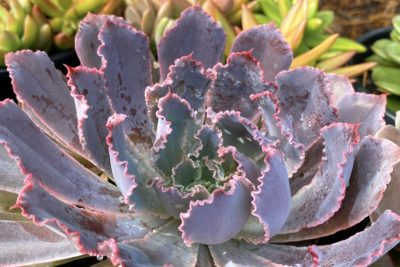
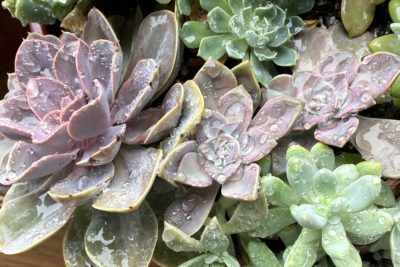
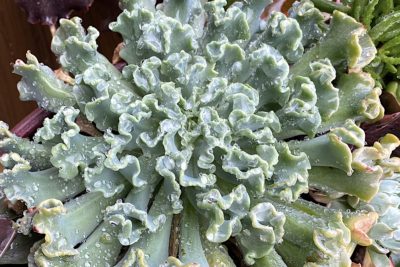
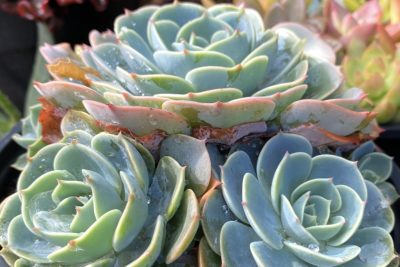

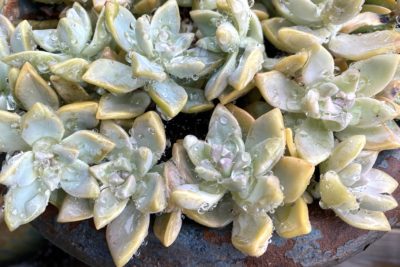
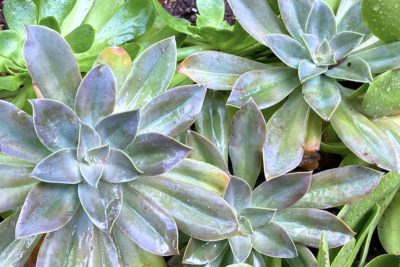
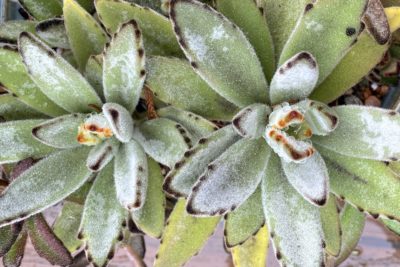
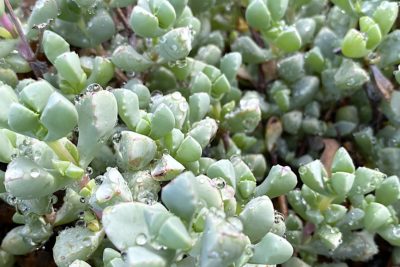
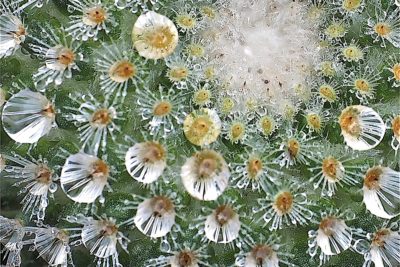
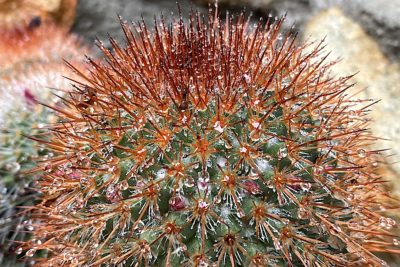
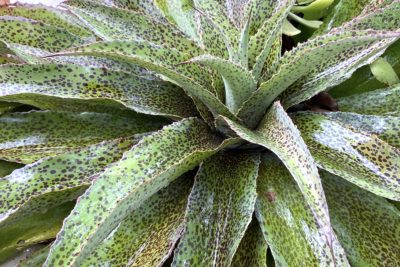
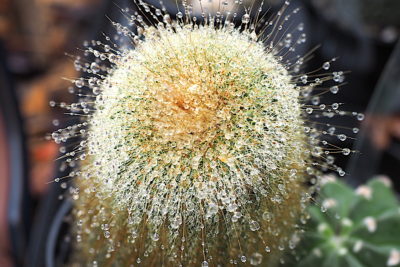
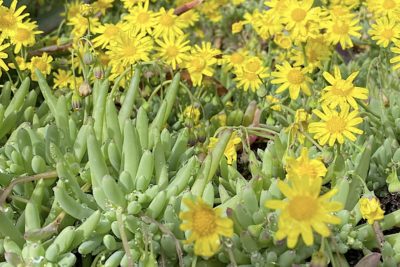
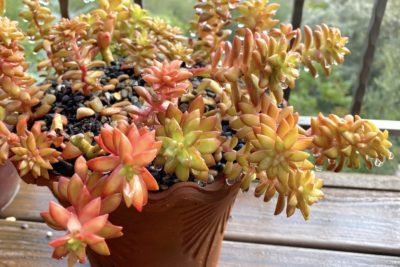
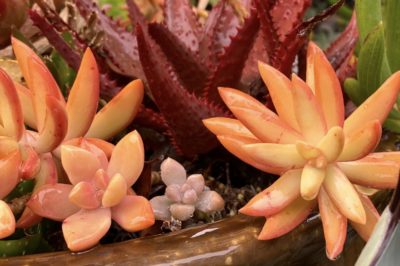
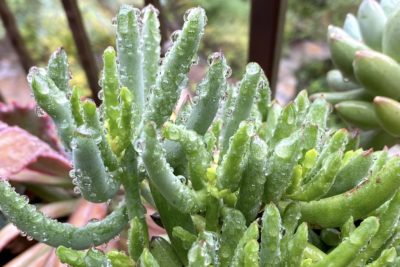
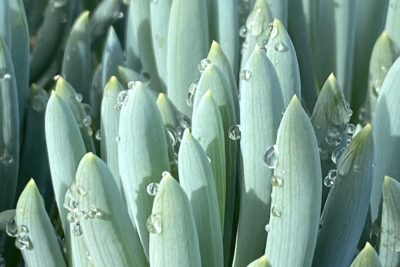
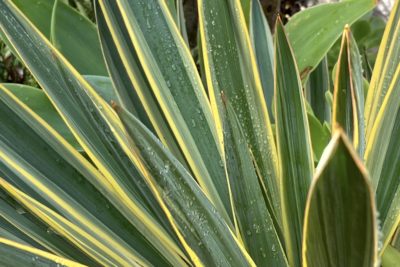
Where can I shop for exotic succulents?
Hi Gwen — Mountain Crest Gardens, Grigsby Cactus Gardens, and Petra Crist’s Rare Succulents. See reader recommendations on my post, “Where Do YOU Shop for Succulents?”
I live above 5,000 feet in Colorado. I know that some hens and chicks can weather out the winter here….I want to bring mine in. How can I insure I’m not bringing in pests? I will report for one….is there anything else you recommed.
Hi Marcy — Give them a good grooming on their way to bed (dormancy) indoors. Remove old leaves, check leaf axils and give tight rosettes a blast of water. You also don’t have to bring in a lot of soil. Many succulents will overwinter bare-root or as pups or cuttings. I tell how Thomas Hobbs, a nurseryman in Vancouver, BC, overwinters his succulents on p. 124 of the first edition of Designing with Succulents. To help you and others, I’ve added the info to this site’s page on overwintering succulents. Thanks for your comment!
Have you thought about collecting your post rain photos of your succulents and cactus with the rain drops on them for a calendar? I think it would be beautiful.
Thanks, Susan — Great idea, and a lovely compliment! Would be a perfect way to illustrate the winter months, but maybe not the summer ones. Hm.
Hey Debra, perhaps for that calendar, you could use the rain photos for winter (and winter-blooming aloe pics), photos of those plants that bloom in spring, some of plants under a bit of summer ‘stress’ for those that take on great colors then, and for the fall months, plants at their best during those months. You have a lot of plants to work with, and I’m sure excellent photos from all seasons!
Hi Michele — Now that you mention it, I sure could! I’m definitely going to take your advice. Maybe I’ll caption each to explain its relevance to a particular month. Someone else suggested I add seasonal succulent chores (fertilizing, deadheading, treating for snout weevil) to calendar pages as well. What great ideas!